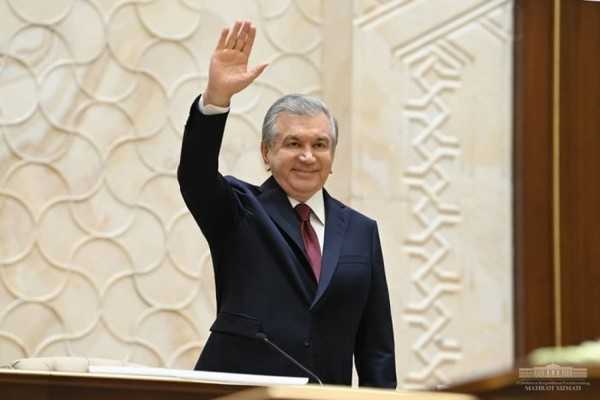
President of Uzbekistan Shavkat Mirziyoyev has been in office since 2016. During his time in office, he has launched a number of reforms aimed at liberalizing the economy, improving the lives of Uzbek citizens, and strengthening the country’s international standing.
Some of Mirziyoyev’s key activities and reforms include:
- Economic reforms: Mirziyoyev has implemented a number of economic reforms aimed at attracting foreign investment, stimulating private enterprise, and creating jobs. These reforms include reducing government regulation, liberalizing the currency market, and improving the business climate.
- Social reforms: Mirziyoyev has also implemented a number of social reforms aimed at improving the lives of Uzbek citizens. These reforms include increasing access to education and healthcare, improving housing conditions, and raising social benefits.
- Political reforms: Mirziyoyev has also introduced some political reforms, such as loosening restrictions on the media and civil society. However, he has also been criticized for his crackdown on dissent and his failure to fully democratize the country.
- Foreign policy reforms: Mirziyoyev has overhauled Uzbekistan’s foreign policy, opening up the country to the outside world and improving relations with its neighbors. He has also played a leading role in regional cooperation initiatives.
Mirziyoyev’s reforms have had a positive impact on Uzbekistan. The economy has grown steadily, poverty rates have declined, and access to education and healthcare has improved. Uzbekistan’s international standing has also improved, with the country being elected to the UN Human Rights Council and hosting the Shanghai Cooperation Organization summit in 2022.
However, there are still some challenges that Mirziyoyev needs to address. Corruption is still a major problem in Uzbekistan, and the country’s human rights record remains poor. Mirziyoyev also needs to do more to diversify the economy and create jobs for the country’s growing youth population.
Overall, Mirziyoyev’s presidency has been a positive one for Uzbekistan. He has implemented a number of reforms that have improved the lives of Uzbek citizens and strengthened the country’s international standing. However, there are still some challenges that he needs to address in order to ensure Uzbekistan’s long-term prosperity.
Prospects
Mirziyoyev’s prospects for the future will depend on his ability to continue implementing reforms and addressing the challenges facing Uzbekistan. If he is successful, Uzbekistan could become a more prosperous and democratic country. However, if he fails, the country could stagnate or even regress.
Some of the key challenges that Mirziyoyev will need to address in the coming years include:
- Corruption: Corruption is still a major problem in Uzbekistan, and it undermines the country’s economic development and social progress. Mirziyoyev will need to do more to crack down on corruption and create a more transparent and accountable government.
- Human rights: Uzbekistan’s human rights record remains poor, with restrictions on freedom of speech, assembly, and association. Mirziyoyev will need to improve Uzbekistan’s human rights record in order to fully integrate the country into the international community.
- Economic diversification: Uzbekistan’s economy is heavily dependent on cotton and natural gas exports. Mirziyoyev will need to diversify the economy in order to create jobs and reduce the country’s vulnerability to external shocks.
- Youth unemployment: Uzbekistan has a large and growing youth population. Mirziyoyev will need to create jobs for these young people in order to prevent social unrest and instability.
Despite these challenges, Mirziyoyev has made significant progress in reforming Uzbekistan. If he is able to continue implementing reforms and addressing the challenges facing the country, Uzbekistan has the potential to become a more prosperous and democratic nation.
- Economic Reforms and Achievements:a. Liberalization of the Economy: Mirziyoyev has aimed to liberalize Uzbekistan’s economy by implementing market-oriented reforms, reducing bureaucratic barriers, and attracting foreign investment. Efforts have been made to improve the business environment and promote entrepreneurship.
b. Diversification and Industrialization: The government has focused on diversifying the economy beyond traditional sectors like cotton and minerals. Initiatives include supporting the development of manufacturing, technology, agriculture, and tourism to promote sustainable economic growth.
c. Improving Investment Climate: Mirziyoyev has taken steps to attract foreign investment by improving transparency, simplifying regulations, and creating special economic zones. Uzbekistan is working to develop infrastructure and logistics to enhance trade connectivity.
- Social Reforms:a. Education and Healthcare Reforms: The government has made efforts to improve the education and healthcare systems by investing in infrastructure, training for teachers and medical professionals, and upgrading facilities. Modernizing the curriculum and expanding access to quality education and healthcare services have been priorities.
b. Agricultural Reforms: Efforts have been made to modernize the agricultural sector, providing support to farmers, improving irrigation systems, and encouraging the use of modern agricultural practices to increase productivity and food security.
- Political Reforms:a. Decentralization and Local Governance: Mirziyoyev has initiated efforts to decentralize power and increase local autonomy, enabling regions to have more authority over their own development and decision-making processes.
b. Human Rights and Civil Society: There have been some improvements in terms of human rights, media freedom, and civil society engagement. However, challenges remain, and further progress is needed to ensure a more open and democratic society.
- International Relations:a. Regional Cooperation: Uzbekistan under Mirziyoyev has pursued a policy of improved relations and increased cooperation with neighboring countries and regional organizations, fostering stability and collaboration in Central Asia.
b. Engagement with Global Powers: Uzbekistan has sought to diversify its foreign policy by engaging with multiple global partners, including the United States, Russia, China, and the European Union, to strengthen economic ties and enhance diplomatic relations.
- Prospects:Shavkat Mirziyoyev’s presidency has shown a commitment to reform and modernization. The prospects for Uzbekistan include continued economic diversification, further improvement in the investment climate, and progress in social and political reforms. Challenges such as ensuring sustainable development, enhancing human rights, and managing regional dynamics will require ongoing attention and efforts.